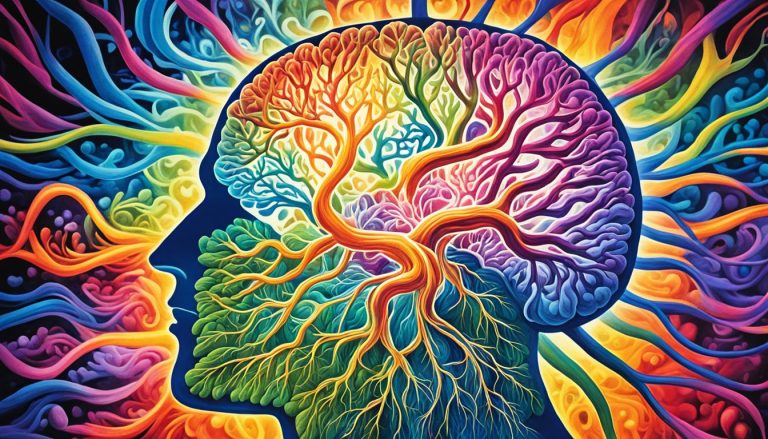What Are The Side Effects Of Ibogaine?

When considering potent therapeutic remedies, one quintessential candidate that has garnered significant attention is Ibogaine. Derived from the root bark of the African shrub Tabernanthe iboga, this indole alkaloid has made headlines for its unconventional approach to combating opioid and various substance dependencies. With its capability to potentially disrupt addiction patterns, those seeking relief often inquire: what are the side effects of ibogaine? Understanding the ramifications of ibogaine treatment is as crucial as acknowledging its therapeutic prospect. As we delve into the ibogaine side effects, it is imperative for individuals to note the potential risks, ranging from mild discomfort to severe health implications. Possible side effects of ibogaine can present a gamut of challenges, making informed decisions an indispensable part of the healing journey.
Key Takeaways
- Knowledge of the full spectrum of ibogaine side effects is vital for those considering treatment.
- Cognitive alterations and cardiovascular concerns highlight the possible side effects of ibogaine.
- Due to the complex nature of its interactions, close medical supervision is paramount to mitigate ibogaine treatment side effects.
- Individuals with pre-existing medical conditions should exercise heightened caution in the face of ibogaine’s potential risks.
- While beneficial outcomes are possible, assessing the advantages against the risks of ibogaine therapy requires thorough deliberation.
Understanding Ibogaine and Its Therapeutic Use
The journey to grasp the full scope of ibogaine therapy commences with its origins, a natural substance steeped in traditional practices yet vaulting into the contemporary spotlight for its potential against the scourge of substance dependencies. As we uncover the layers of ibogaine’s uses and the surrounding legal tapestry, it is critical to remain cognizant of the risks of ibogaine therapy and the potential negative effects of ibogaine.
The Origin and Traditional Applications of Ibogaine
Rooted in the rites of West African societies, ibogaine is harvested from the Tabernanthe iboga plant, venerated for its psychoactive prowess. These communities have long harnessed the alkaloid for spiritual awakenings and initiation ceremonies, laying the groundwork for the substance’s modern therapeutic explorations.
Ibogaine as a Modern Alternative for Addiction Treatment
In stark contrast to its ancestral roles, today’s investigations into ibogaine unveil a potential bastion against the chains of addiction. The alkaloid’s intriguing ability to alleviate withdrawal symptoms and curb cravings for opioids, alcohol, nicotine, and stimulants marks it as a notable, yet controversial, candidate in the realm of addiction medicine. Nevertheless, the often-discussed ibogaine therapy and side effects cannot be dismissed, as these may range from mere discomfort to severe medical events.
Legal Status and Regulatory Concerns
Ibogaine’s voyage through legal channels paints a patchwork picture: while some nations embrace its medicinal prospects, others, like the United States, cast it into the Schedule I category—a classification denoting high abuse potential and a lack of accepted medical use. This dichotomy reflects not only a disparity in international drug policies but also an acute awareness of the risks of ibogaine therapy.
As the conversation on ibogaine advances, its dual face emerges: a potential savior for those in the throes of addiction and a compound fraught with legal and safety hurdles. Stakeholders and patients alike are therefore tasked with navigating a nuanced terrain, one where hope and caution must coexist.
Common Physical Side Effects of Ibogaine
When exploring the viability of ibogaine as a treatment for substance dependency, potential patients must be made aware of the adverse reactions to ibogaine. One such reaction that significantly affects daily functioning is ataxia. This lack of muscle control can disrupt the fine coordination necessary for tasks ranging from walking to simple hand movements, profoundly impacting quality of life.

Other ibogaine safety concerns involve the digestive system, as many individuals report experiencing dry mouth, nausea, and vomiting. These symptoms can be so severe that alternative methods of administering the drug, such as through an enema, become a necessity to ensure patients can maintain the appropriate dosage levels.
Of significant concern is ibogaine’s effect on cardiac health. The substance can lead to serious cardiovascular issues, including ventricular tachyarrhythmias and the more concerning QT prolongation. These heart-related side effects underscore the necessity for close medical supervision during ibogaine treatment, particularly for those with a history of heart problems.
As ibogaine is metabolized by the cytochrome P450 2D6 enzyme, there exists a heightened potential for adverse substance interactions. This stark reality calls for an attentive approach to dosage and careful consideration of any other medications that the patient may be taking concurrently.
Selecting ibogaine treatment involves thorough consideration of these physical side effects alongside the potential therapeutic benefits. Patients and healthcare providers must engage in open dialogue about these risks to make informed decisions tailored to individual health needs.
What Are The Side Effects of Ibogaine in Neuropsychiatric Health?
While ibogaine is lauded for its withdrawal-mitigating properties in addiction treatment, it’s important to recognize its extensive ibogaine treatment side effects on neuropsychiatric health. These side effects can range from deeply introspective experiences to grave psychiatric reactions. Adverse neuropsychiatric reactions not only raise concerns for those seeking treatment but also for medical professionals monitoring these treatments.
Cognitive Impairments and Potential Psychosis
Ibogaine is associated with various neurological effects that can manifest as difficulty in concentration, memory issues, and in severe instances, psychosis. The complex interaction between ibogaine and brain chemistry can lead to profound disorientation and an altered state of consciousness, which may mimic oneiric states.
Observations of Mood Fluctuations and Manic Episodes
Oscillations in mood ranging from sheer euphoria to severe depression have been observed in individuals undergoing ibogaine treatment. Particularly disturbing are the reports of manic episodes where individuals exhibit abnormally high energy and decreased need for sleep, synonymous with the possible side effects of ibogaine.
An Overview of Hallucinogenic Effects
Ibogaine has hallucinogenic properties that influence its impact on the 5-HT2A receptors in the brain. These receptors are implicated in the regulation of mood, cognition, and perception. On occasions, individuals experience profound visions, providing psychological insights that contribute positively to their healing process. However, it’s crucial to note that these hallucinogenic effects vary greatly among individuals and can result in distressing experiences.
Risks Associated with Pre-Existing Health Conditions
When it comes to exploring the potential complications of ibogaine, individuals with existing medical conditions must tread with extreme caution. The interaction of ibogaine with certain health issues can not only intensify underlying conditions but also provoke new challenges, underscoring the substance’s complex nature.
Cardiac Complications: A Deep Dive into QT Prolongation and Arrhythmias
Cardiac health takes center stage in the discussion of ibogaine’s safety profile. Those with a history of heart conditions are particularly vulnerable to the adverse cardiac effects ibogaine can induce. The risk of QT prolongation—a measure of delayed heart muscle repolarization—is notably alarming. This delay can cascade into serious arrhythmias, which, in extreme cases, may result in cardiac events with fatal outcomes.
Substance Interaction Risks and the Role of Cytochrome P450 2D6
Cytochrome P450 2D6 plays a pivotal role in the metabolism of various pharmaceuticals, including ibogaine. Those with health conditions that already require medications need to be acutely aware of the enzymatic interactions that may alter ibogaine’s effects. Unforeseen side effects can occur due to the modulation of this metabolic pathway, further complicating a patient’s treatment regimen.
The Impact on Liver Health and Metabolic Processes
The liver, the body’s chemical processing plant, is yet another critical focal point when considering the safety parameters of ibogaine use. Ibogaine’s metabolization demands significant hepatic effort, which in individuals with compromised liver function, could precipitate a decline in liver health or exacerbate pre-existing conditions. A thorough evaluation of hepatic and metabolic health is essential before contemplating ibogaine therapy.
Long-Term Side Effects of Ibogaine Usage
The conversation about the use of ibogaine often focuses on its immediate impact and potential as a substance abuse treatment. However, there’s another chapter to this story — the long-term side effects of ibogaine usage. Much of what we know hovers around anecdotal evidence and sparse studies due to the novelty and legal restrictions of the substance. Still, the data pointing to negative impacts on heart health are significant enough to raise concern.
Instances of cardiac arrest post-ibogaine ingestion ignite a dialogue about its safety profile over time. The notion of ibogaine as a miracle cure becomes muddled when faced with the evidence of potential heart damage. It’s paramount to ask, at what cost does ibogaine treatment come, and is the trade-off for potential heart health issues a fair one? These are the stories often left untold, overshadowed by the immediate gratification of withdrawal symptom relief.
On the neurological front, the possibility of neurotoxicity casts a shadow on ibogaine’s long-term viability. Cerebellar neurodegeneration, highlighted in animal studies, suggests a looming threat at high doses, conjuring images of a double-edged sword — a treatment that giveth and taketh away. As researchers continue to untangle the web of ibogaine’s effects, the complete landscape of its long-term safety remains mired in uncertainty.
Perhaps, more disheartening is the reality of relapse. The journey through addiction is fraught with challenges, and the negative effects of ibogaine are not exempt from this narrative. For some, ibogaine is but a temporary respite, a hiatus in an ongoing battle with addiction, reminding us that there are no magic potions in the fight towards sustainable recovery.
It is clear that ibogaine carries the weight of various potential long-term side effects, yet the full spectrum eludes the scientific community. It indicates a pressing need for deeper research and a more comprehensive understanding before we can fully endorse its use. For now, the curtain remains drawn, with only hints of what lurks in the long-term usage of ibogaine.
Conclusion
As we navigate the nuanced landscape of addiction treatment, ibogaine emerges as a beacon of hope for many grappling with substance dependencies. Yet, with the promise of its therapeutic potential comes an intricate web of side effects and risks that must be prudently considered.
The **risks of ibogaine therapy** are as diverse as they are serious, encompassing cardiovascular complications like arrhythmias and long QT syndrome, as well as potential neurotoxicity. These concerns, alongside the significant chances of adverse interactions with cytochrome P450 2D6, position ibogaine as a substance requiring meticulous medical oversight. The intricate legal status of ibogaine further mirrors the global concerns regarding its safe application and the pressing need for further research and regulation.
In essence, those pondering the question, “what are the side effects of ibogaine,” will find the answers are not only extensive but also emblematic of the critical balance between the compound’s medicinal potential and its challenges. **Ibogaine therapy and side effects** go hand in hand; thus, it is essential for individuals and healthcare providers alike to conduct a thorough risk-benefit analysis before embarking on a journey with this potent and enigmatic alkaloid. Through such vigilance, the path to healing can be navigated with informed caution and respect for the intricate dynamics of this powerful treatment modality.






